The Sergeant reached for his tools in a holster secured to his hip. His hands were cold, almost frozen it seemed. The temperature was below freezing and colder still at the thirty feet in the air he stood, at the top of a telephone pole. The wind made it seem colder still. It is January 13, 1944, France, and as the soldier reached for the damaged wire he heard the noise he most dreaded.
A German Messerschmitt fighter plane had spotted him and was in a dive position at 200 miles an hour hurling directly toward him. The Sergeant knew it was too high to jump and too short of time to shimmy down the pole. With only seconds to think, the Sergeant could do only one thing. He moved to the other side of the pole and held tight to take his chances that the pole would shield him. The fighter pilot, aiming at the lone soldier opened fire with his twin mounted machine guns blasting at the Sergeant. Bullets sprayed and splintered the pole as the Ssergeant held on, literally, for his life.
Once the Sergeant realized that the spray of bullets had hit the pole and left him unscathed he also realized that the enemy was banking in the distance and was to return to attack the lone soldier once more. The Sergeant scrambled as far down the pole as time allowed, but the plane was bearing down on him. Knowing he was in the enemy’s sights, and realizing he was running out of time to escape, ten or twelve feet off the ground the Sergeant jumped, ramming one of his spear-like climbing spikes into his leg and opening a gash as he fell. He then dove for cover as the Messerschmitt fired its machine guns again. The bullets destroyed the soldier’s truck, but missed the Sergeant.
A little over a year later the Sergeant, William Wesley “Jack” Marple returned to his family in Columbus, Ohio. That Sergeant was my father and his brush with death won him the Purple Heart. He loved surviving much better than receiving the medal for his valor.
That was the last pass by the plane. A fitting symbol of the war and the battle that finished off Germany and the Nazi’s, because this event was part of the “Battle of the Bulge”. One of the most famous battles in the history of the U.S. Military. It was the longest (December 16, 1944 to the end of January, 1945), and, the bloodiest battle of World War II. Of the 600,000 America troops in the battle almost one in six were killed, wounded or captured.
My wife Mary’s, Uncle Tommie was engaged in the very same battle. He was a Methodist Minister with a wife and young daughter at home. He could have received a deferment because of his religious position, or he could have entered the conflict as a Chaplin which would have been much safer. But, he went in like everyone else, and would not take any advantage because of his position. His platoon came upon some telegraph lines that were cut and Tommie volunteered to go up the pole and repair the cut wire. Once he reached the top, he was shot and killed by a sniper. This was a real, live danger every time a Signal Corp lineman climbed a pole. Their job was as important as any in the war. They kept the lines of communication open between the various battlegrounds. They went out in a team of nine or ten in two trucks and their job was to repair damaged lines and string new ones. They were on their own and hoped they didn’t make a wrong turn and end-up behind enemy lines. Every day was a challenge to stay alive. They were seldom in the relative comfort zone of being surrounded by allies and friends.
Always out there alone. Hoping they didn’t get captured or shot. Hoping a plane didn’t pick them off or a sniper see them on a pole as an easy target; sleeping in pup tents and fox holes every night for years.
Dad would tell this story of his platoon. He was the ranking man of his merry little troup and one day, having taken a wrong turn, they stopped at a farm house where a little French girl was outside playing. They asked the child if she had seen any German soldiers go by. She said no. They asked her if she had ever seen any German soldiers. She pointed to a hillside not more than 200 yards away. “Only those, over there,” she said. The boys looked up to see what looked like half the German army within a stone’s throw. When dad said they got out of there fast, we can believe it. Such was the life of a signal corpsman operating outside any army protection.
We got dad back with us. Can you imagine our life without him? I can’t. It would have been a far different life for me and many of us. I really don’t want to think about that.
Tommie Blake’s family was not so fortunate. He didn’t return. But, his brother, Charlie Blake, Mary’s dad, did return after five and a half years following Patton through North Africa and Italy in the Army Air Corps. He had joined up to be a pilot, but his eyesight made him relegated to serving as a plane mechanic. They wouldn’t let those guys out of the army until the war was over because we had to keep our airplanes flying. Once home, he married Tommie’s widow, Sidney, and a few years later Mary Blake, your Nana, was born. So the widow and baby that Tommie left behind became Mary’s mother and sister.
Charlie’s little brother, Wilborn Blake was in the navy in the Pacific Conflict and came home safe, but Sidney’s little brother, Jimmy Allen, was not so lucky. So, she lost both, her husband and a brother to WWII.
We just want to say, thank you to Jack and Tommie and Jimmy and Charlie, who were brave enough to serve us so well. Thank you also Uncle Hooch, Milt and Helen Newell, Pap-Pap and all the others who have fought and risked their life, or given their lives, or were ready to, so that the rest of us did not have to go to war. Dean and Mollie and I did not go to war, although I would have done so if the need had been there. Nor did any of our children have to go off to battle and perhaps our grandchildren as well. We shall see on that score.
Thanks too, to our ancestors that fought in all the other conflicts that came before that made America what it is, “…a shining light on a hill.”
These are our hero’s and it is why we honor those who have gone before and made us proud. It is for them that we celebrate Memorial Day. It is for them that our eyes mist when Old Glory passes by. We are eternally grateful.
“Land where our fathers died,
Land of our pilgrims’ pride,
From every mountainside,
LET FREEDOM RING!”
Memorial Day, 2011
JHM
Splendid editing, as usual, by MEB
Note from brother Dean to brother Jon:
Dad had to stay several months after the war during the transition to peace in Germany. I would imagine he was putting up communication lines. This winter he shot 32 deer for his men and the locals to eat. The Germans were starving because of the devistation and dad would shoot a deer and they would dress it and he would take the hind qtrs. for his men and leave the rest to the german people. One of my favorite stories about Dad. When some new recruits arrived after the war, dad took a young kid out to shoot deer. He told the kid that he only shot the deer in the eye, that way, none of the meat would be destroyed by the bullet. They were on a ridge and saw a small herd of deer below them over 100 yards away. Dad said he would take a certain deer and the other fella should shoot another. Dad's lucky shot was just under the eye but any good hunter would have aimed for the heart. The kid was so impressed that he told everyone that Jack Marple was the best shot he'd seen.



















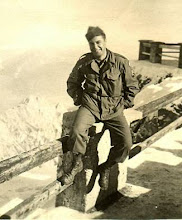
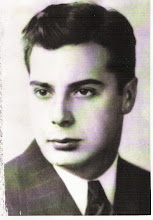








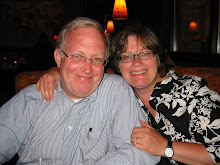






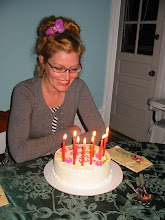
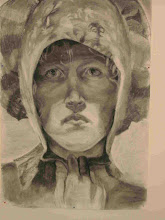







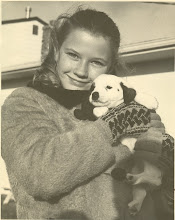
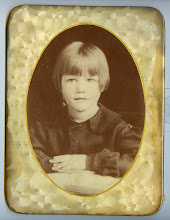
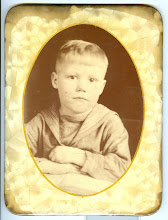
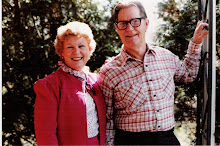
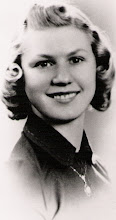
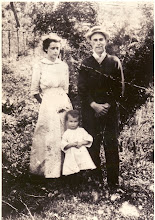






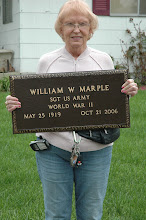
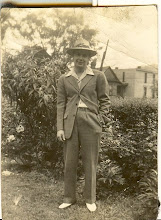
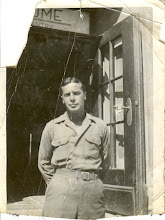
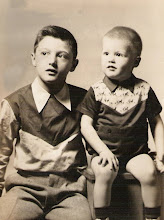
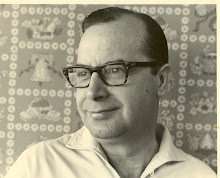
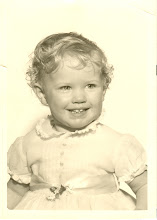
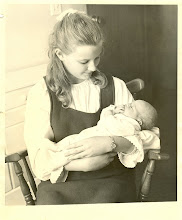
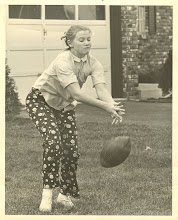







































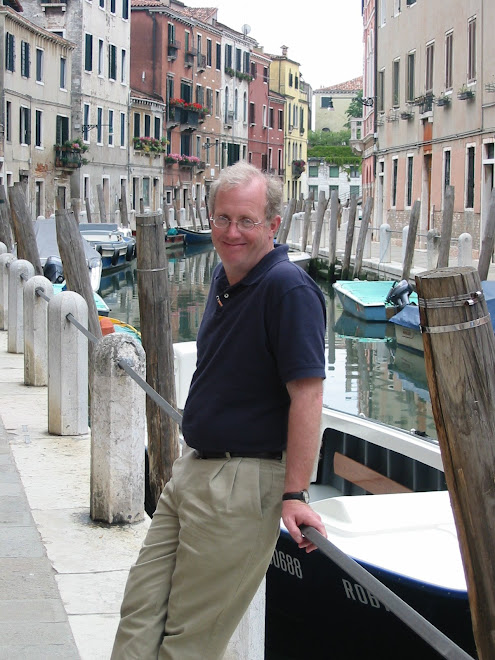
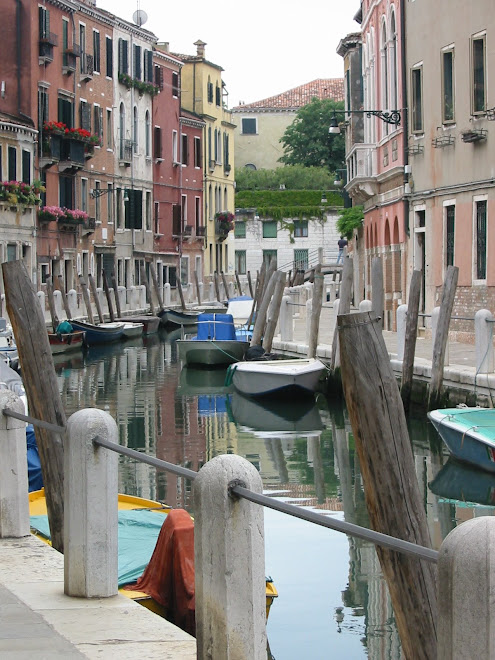
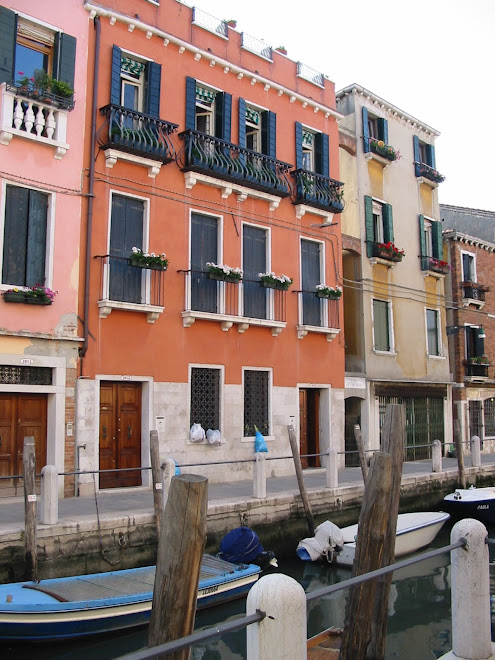
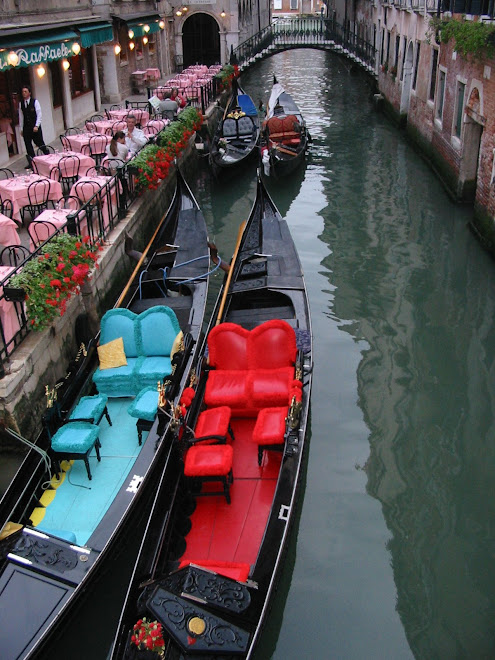
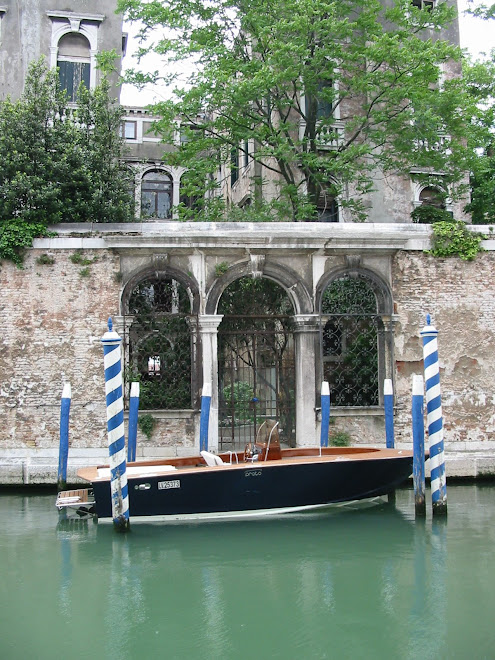
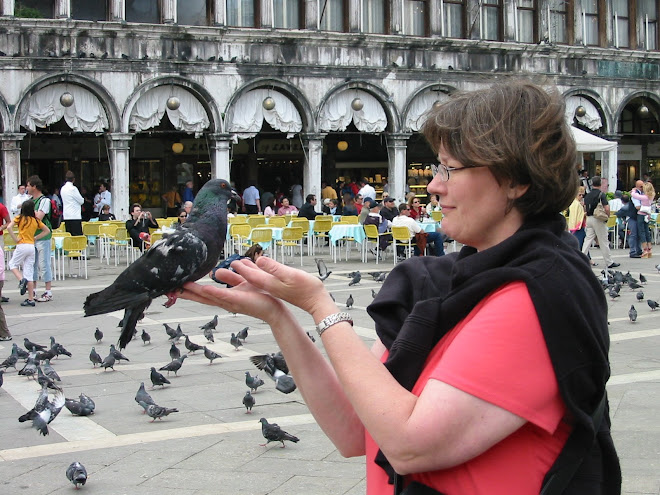
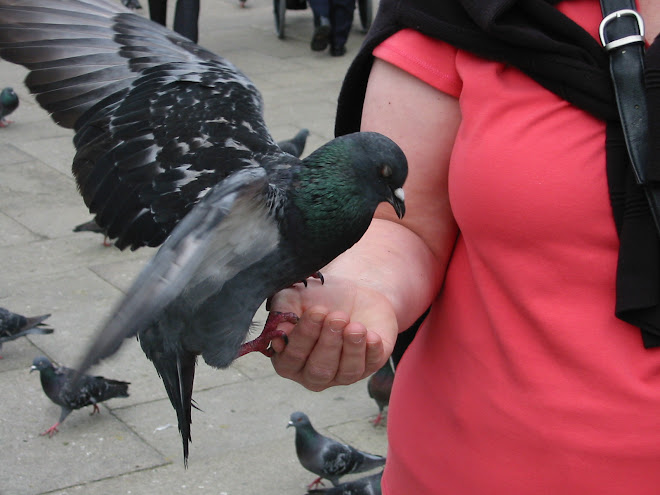
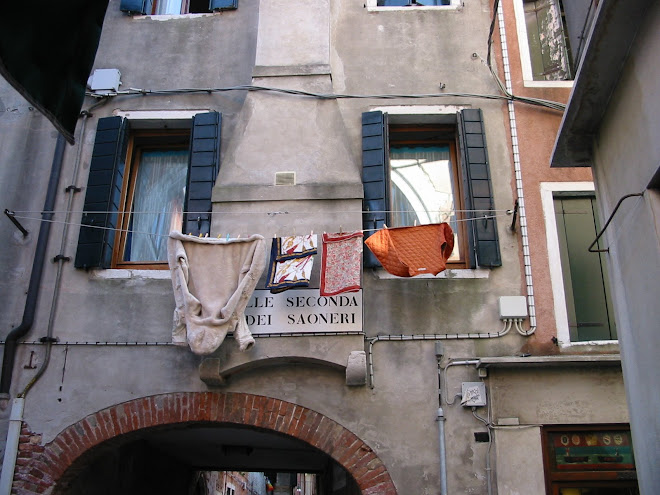
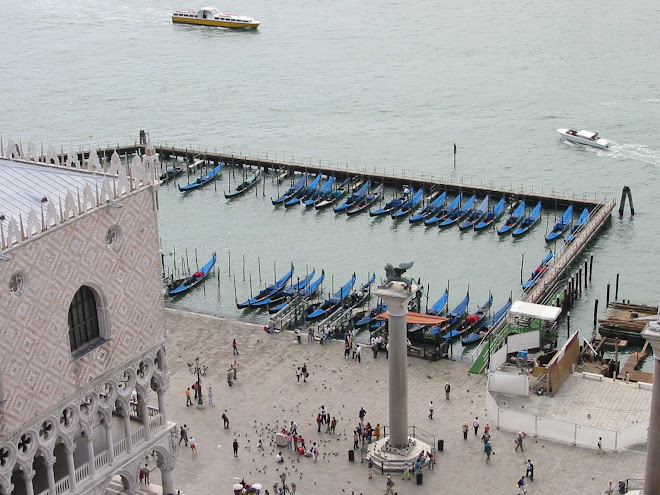



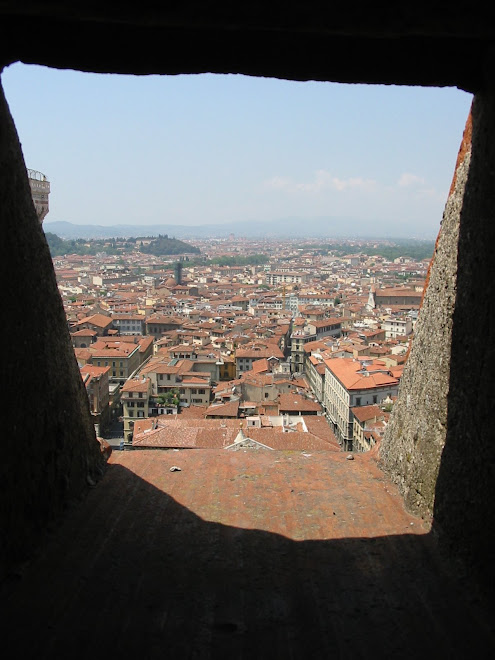

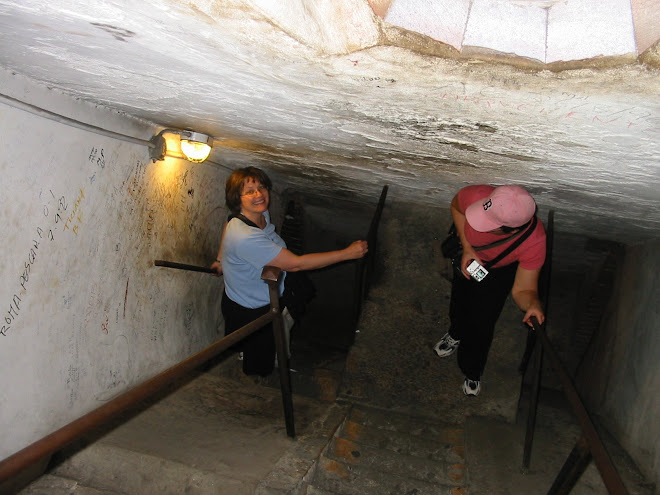

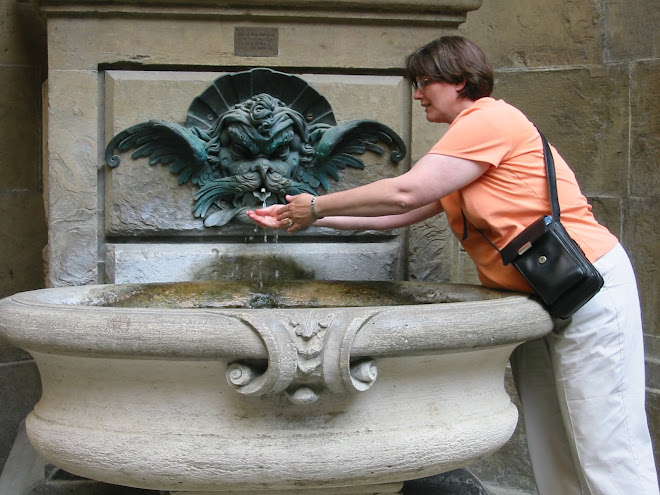

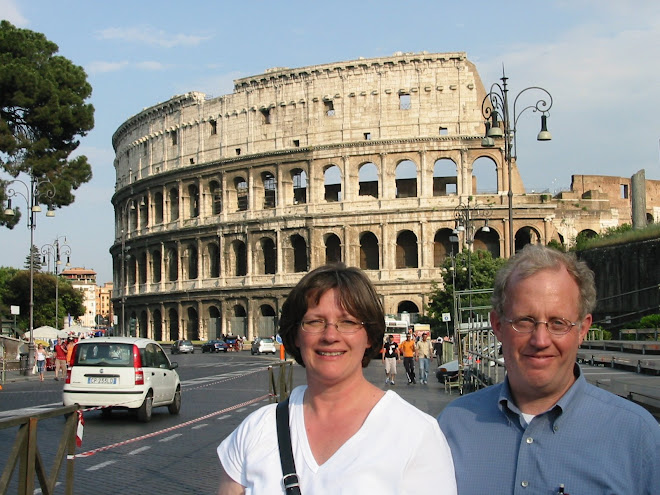


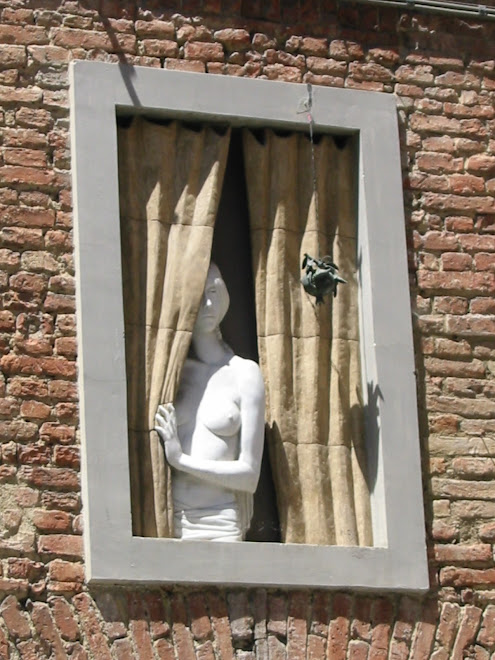
























No comments:
Post a Comment